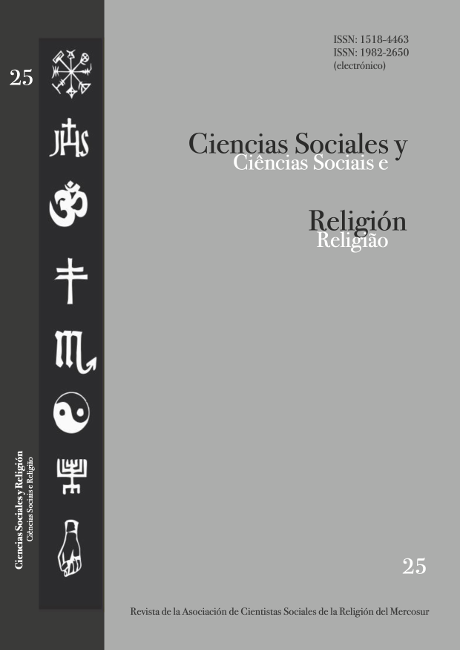Abstract
The Liberation Theology in Latin America complements Marxism in the configuration and pedagogic dissemination of a new anti-capitalist culture. At the same time, considered as a popular cultural movement, it has also an emancipator function such as AntonioGramsci establishes for the Communist Party: Ideological stimulation towards socialism, critic of the capitalist system, stimulation towards revolutionary organizations, and ideological legitimation of a revolutionary project. Given this analogy, the present article tends to analyze Gramsci’s vision over the religious element, and its similarities with the project of the Liberation Theology, both of which defend the dialogue between Christians and Marxists.
References
CERUTTI GULDBERG, Horacio (Ed.): Filosofía de la liberación latinoamericana. México DF: F.C.E, 1983.
DIAZ SALAZAR, Rafael: El proyecto de Gramsci. Barcelona: Anthropos, 1991.
DUSSEL, Enrique. Teología de la liberación y marxismo. In: LOWY, Michael. El marxismo en América Latina. Antología desde 1900 hasta nuestros días. Chile: LOM, 2007.
GRAMSCI, Antonio. Antología. Buenos Aires: Siglo XXI, 2009. (Selección, traducción y notas de Manuel Sacristán).
GRAMSCI, Antonio. “Los intelectuales y la organización de la cultura”. In Cuadernos de la cárcel. México: Juan Pablos Editor, 1975.
GRAMSCI, Antonio. “El partido Comunista”, “La situación italiana y las tareas del PCI (Tesis de Lyon)”, “Orígenes de la acción católica”, “El pensamiento social de los católicos”, “Sobre la pobreza, el catolicismo y la jerarquía eclesiástica”, “La función de los católicos en Italia”, “Los católicos y la insurrección”, “Conflicto entre Estado e Iglesia como categoría histórica eterna”. Disponibles en: www.gramsci.org.ar (08/2015)
LOWY, Michael. Guerra de Dioses. Religión y política en América Latina. México: Siglo XXI, 1999.
LOWY, Michael. “Mística revolucionaria: José Carlos Mariátegui y la religión”. Utopía y Praxis Latinoamericana. Revista Internacional de Filosofía Iberoamericana y Teoría Social – Universidad del Zulia. Maracaibo-Venezuela. Año 10. No 28 (Enero-Marzo, 2005) Pp. 49 - 59.
MASSARDO, Jaime. La recepción de Gramsci en America Latina: Cuestiones de orden teórico y político. International Gramsci Society Newsletter. Number 9 (Marzo, 1999): electronic supplement 3.
PORTANTIERO, Juan Carlos. Los usos de Gramsci. México: Folios, 1981.
SILVA GOTAY, Samuel. Origen y desarrollo del pensamiento cristiano revolucionario a partir de la radicalización de la doctrina social cristiana en las décadas de 1960 y 1970. In: AA.VV. Historia de Teología en América Latina. San Pablo: Ediciones Paulinas, 1981.

This work is licensed under a Creative Commons Attribution-NonCommercial-ShareAlike 4.0 International License.
Copyright (c) 2020 Pia Paganelli
